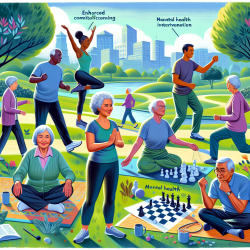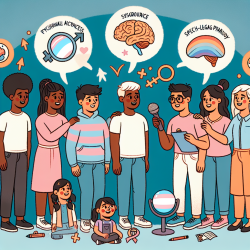Introduction
In the evolving landscape of healthcare, particularly for older adults, the integration of physical activity into daily routines emerges as a potent non-pharmacological intervention. The research article "Physical Activity and Neuropsychological Functioning in Older Adults" highlights the significant benefits of regular physical activity on mental health and cognitive functioning in community-dwelling older adults. This blog aims to guide practitioners in leveraging these findings to enhance therapeutic outcomes.
The Role of Physical Activity
Physical activity, encompassing all forms of bodily movement that result in energy expenditure, has been shown to positively influence mental health by reducing symptoms of depression and anxiety. The study under discussion utilized validated measures to assess these symptoms and found that older adults engaging in regular physical activity reported significantly lower levels of depression and anxiety.
Cognitive Benefits
Beyond mental health, physical activity also plays a crucial role in maintaining cognitive health. The study demonstrated that older adults who regularly engaged in physical activity scored higher on cognitive assessments, indicating better cognitive functioning. Notably, improvements were most significant in processing speed and memory, which are critical domains for maintaining independence in older age.
Implementing Findings in Practice
Practitioners can harness these insights by encouraging older adults to incorporate physical activity into their routines. Here are some strategies:
- Psychoeducation: Educate patients about the cognitive and mental health benefits of regular physical activity.
- Customized Activity Plans: Develop personalized exercise plans that align with the individual's interests and physical capabilities.
- Community Programs: Advocate for and facilitate access to community-based physical activity programs designed for older adults.
Encouraging Further Research
While the current study provides compelling evidence, there remains a need for further research to explore the mechanisms by which physical activity influences cognitive and mental health. Practitioners are encouraged to contribute to this growing body of knowledge by participating in or initiating research studies that investigate the long-term effects of physical activity on neuropsychological outcomes.
Conclusion
Integrating physical activity into the care plans of older adults can significantly enhance their mental and cognitive health, offering a viable alternative or complement to pharmacological interventions. By adopting a data-driven approach, practitioners can better support their patients in achieving optimal health outcomes.
To read the original research paper, please follow this link: Physical Activity and Neuropsychological Functioning in Older Adults.










